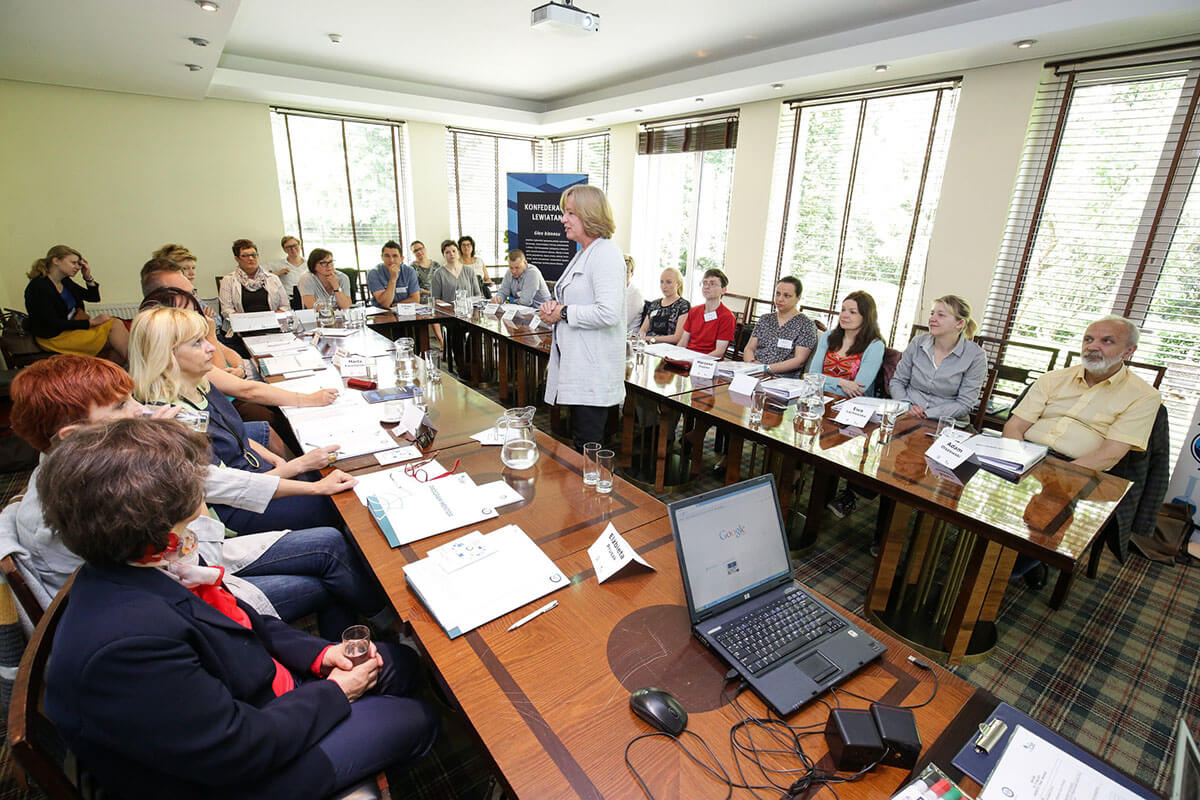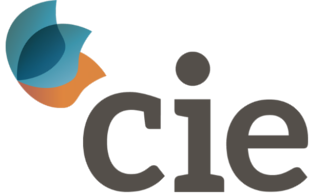
The MENTOR pedagogy development programme
The MENTOR pedagogy development programme has been designed for teachers, heads of primary and secondary schools, pedagogues and supervisors. It applies to formal, non-formal, and informal education. All our courses are tailor-made in order to satisfy individual needs of each Ordering Party.
CIE’s MENTOR course
CIE’s MENTOR courses prepare teaching staff for a major paradigm shift in terms of educational model: from 19th century methods of conveying knowledge to the 21st century system of facilitating child and youth development by means of high-quality mentoring.
The programme is primarily designed to equip teachers with practical tools that allow them to become mentors for their students and assist them in discovering their talents. It is an opportunity for the school staff to embrace modern learning techniques, to draw inspiration from outside the school, and to get accustomed to the digitalization of the teaching profession.

What does the course look like?
The MENTOR course consists of five modules which can be arranged subject to the needs of the Ordering Party. However, each ordered course must begin with a 6-hour workshop on enhancing pedagogue and student motivation in order for it to produce maximum efficiency.
The modules comprise a total of 124 hours of thematic workshops (held from Friday evenings to Saturday afternoons). Each course can accommodate a maximum of 20 pedagogues.
We remain open to alternative solutions in order to meet the needs of our Ordering Parties.
Thematic area 1 – The value of self-discovery
In pursuit of the energy to act
- Self-assessment of life’s driving forces
- Discovering motivation sources
- Motivation: facts and fiction
- Neural mechanism based motivation.
How to build a happy life based on one’s strongest suits?
- ‘Neural’ talents (Gallup research based methodology)
- Diagnosing the strongest neural talents (M. Buckingham’s and D. O. Clifton’s theory of five talents)
- What does success depend on? (Thomas Scheff’s genius theory, Howard Gardner’s multiple intelligence theory, ‘The Element’ by Ken Robinson, also based on the latest research in the field of neurodidactics).
How your mindset translates into your actions
- How your mindset affects your actions.
- What props you up and your potential limitations.
- Evolution in action.
Building mental resilience
- Self-assessment of one’s mental resilience based on the MTQ48 questionnaire.
- Introduction to the 4Cs Mental Toughness Model (Control, Commitment, Challenge and Confidence)
- How your mental resilience affects your everyday functioning.
Thematic area 2 – Learning in focus
How to accompany students in their development?
- Generational differences between teachers and students
- The foundations of learning
- Developing environments conducive to motivating and learning (Hattie)
- Designing stimulating classes.
How to assess constructively
- Introduction to the 5 strategies of formative assessment
- Immediately applicable elements of formative assessment
- Cooperating with parents on the implementation of assessment methods
LSA– Learning Style Analysis
- 49 learning style conditioning factors (based on the Learning Style Analysis method)
- Each student is a unique individual – interpreting individual and group student profiles (based on reports)
- Why the same teaching methods work across different groups (individual teacher profile /TSA/)
- Classroom management tips
- Designing space pursuant to individual predispositions of students
Interdisciplinary projects at school
- Two heads are better than one.
- Leaving the comfort zone of teaching familiar subjects
- Teacher cooperation for the advancement of a holistic approach to science
- Practical examples of implemented interdisciplinary projects.
Education as fun
- Education through games
- Learning to take social action and developing entrepreneurship. Educational games available in Poland.
- Innovative systems of digital, out-of-school education – support for teachers.
Thematic area 3 – ICT-aided planning of educational processes.
Leveraging ICT in designing educational processes
- Reverse lesson using free Internet resources based on the Kolb cycle
- The SAMR model (the tiers of tech integration in the education process).
Effective use of technology at school
- Educational platforms as a tool supporting the organization of education processes, cooperation, project work, and team communication
- Smartphone as an educational tool
- Online networking as a means of exchanging experiences and learning from each other (networking teachers, scientific institutions, and NGOs)
- Cooperating with students on developing the framework for sustainable use of digital innovation in the learning process.
Thematic area 4 – A better class teacher
A difficult parent or a difficult situation?
- A difficult situation – a chance to build and develop relations
- Emotional intelligence as a preventive measure against difficult situations
- Responsibility in the communication process
- Role-playing teacher-parent talks.
Effective classroom management.
- Drawing up value-based contracts
- Group process. The role of the teacher in particular stages of class life
- Participation ladder – from informing to deciding
- Developing creativity and critical thinking at school.
How to assist students in career selection?
- Expectations of current and prospective employers. Future labour markets
- Jobs and skills of the future
- Discovering your potential
- Preparing students for making life choices and decisions.
Reasons and methods of involving the nearest communities.
- Analysing the potential of cooperating with an outside community
- Means of creating safe and valuable cooperation with entrepreneurs.
Thematic area 5 – Active education close to nature
A school outside of school
- Outdoor learning: building trust, cooperation, and creativity
- Learning general science outside the classroom.
Why schools need active eco-education.
- Essential teaching facilities in the context of a circular economy-based school
- Developing students’ eco-awareness as citizens creating 21st century environment
- Climate warming and the daily functioning of a school
- Involving students in practical, green activities.
The MENTOR methodology
Development
CIE programmes are addressed to inspiring teachers and heads of schools. Our workshops focus on enhancing the development of their teaching skills, and do so in the context of implementing change in educational facilities. For the abovementioned reasons, we operate under the assumption that each school is to be represented by a minimum of two teachers.
Experience
CIE programmes create an excellent platform for exchanging teacher observations thanks to adopting the workshop methods based on participants’ experiences.
Practicality
Each module provided participants with ready to use tools and workshop suggestions, all of which can be applied in the classroom while conducting curriculum-covered activities.
Effects
Each module results in particular competences which translate into higher teaching efficiency.
Participation
Each CIE workshop participant is a contributor. CIE provides both workshops and teaching materials. Participants are expected to contribute their professional experience and to demonstrate genuine involvement.


